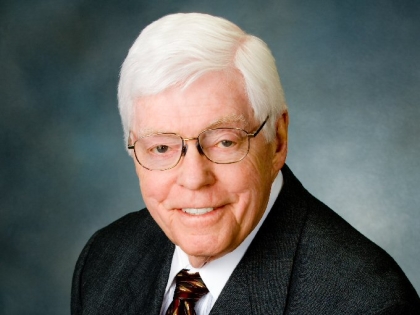
Senate Gives Final Passage To Bill Providing Stopgap Prescription Drug Coverage To More Than 600,000 Seniors, Disabled And Low Income New Yorkers
State Senator Thomas P. Morahanannounced Senate passage of an emergency bill to help thousands of low-income seniors and disabled New Yorkers that are dually eligible for both Medicare and Medicaid pay for medically necessary drugs - that should have been paid for by Medicare’s newly implemented prescription drug program.
"This emergency legislation is critical to ensuring that senior citizens, disabled and/or low-income New Yorkers do not fall through the cracks because of the recent federal changes in prescription coverage," said Senator Morahan.
On Friday, January 13th, the Governor issued an Executive Order directing the State Department of Health to suspend current Medicaid rules for seven days and pay for prescription drugs for dual eligibles. He instructed the pharmacists to collect $1.00 for generic and $3.00 for non-preferred brand from dual eligibles prior to submitting a claim to Medicaid.
On Monday, January 23rd, the Governor extended the suspension of current Medicaid rules an additional seven days. He will carefully monitor the situation and continually reassess options to ensure to program is properly implemented.
This bill allows the Legislature to take it one step further in providing a safety net for New York’s most vulnerable by requiring that New York’s Medicaid program continue to pay for prescriptions drugs for Medicare Part D beneficiaries until the Commissioner declares operational problems associated with the implementation of Medicare Part D, resolved and that emergency coverage is no longer necessary.
The bill also requires that the Commissioner establish an administrative process to effectively implement the temporary changes and that there shall be no local share for any medical assistance payments.
This legislation seeks reimbursement from the federal government and drug plans for any funds the State’s Medicaid programs expends for prescription drugs that should have been covered by Medicare Part D.
In New York, officials estimate that over 128,000 low income beneficiaries are having difficulty in obtaining prescriptions and according to the New York Medicare Rights Center, hotline calls have increased by 400 percent over the last year and 3,000 have yet to be responded to.
###